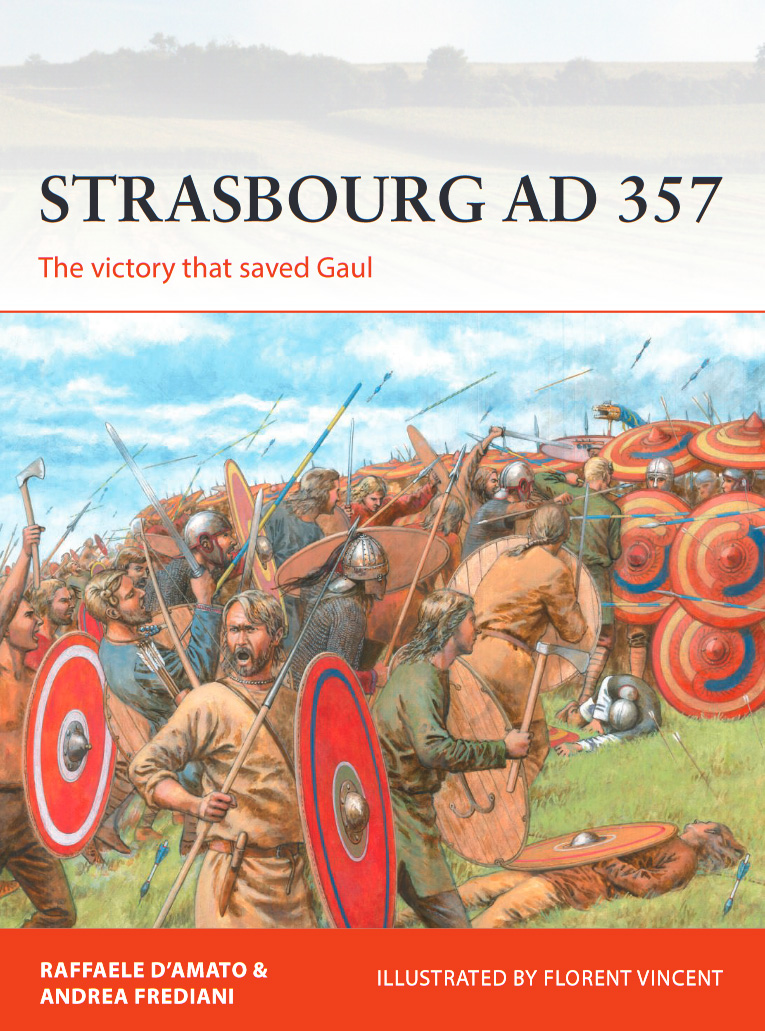Strasbourg AD 357
 Julian the Apostate is known for his disastrous defeat by the Sassanids in 363. d’Amato and Frediani go back six years to show Julian’s very successful campaign in Gaul.
Julian the Apostate is known for his disastrous defeat by the Sassanids in 363. d’Amato and Frediani go back six years to show Julian’s very successful campaign in Gaul.
This is a typical Osprey Campaign book with its conventional format, length, and topics. With two exceptions, all the photographs are in color, and Florent Vincent’s illustrations are good (there are three two-page spreads), better than many from Osprey, but not the best. There also a few older small illustrations showing sample figures with equipment by Igor Dzis. The bibliography goes two pages, the section on the battlefield today is merely one paragraph, but there are several good photos of it in the book.
The authors go into the political background that kept Julian out of the spotlight before he finally ends up in command in Gaul. This also has implications for his relationship with the court of Constantius, and Barbatio, who was effectively a co-commander. This is followed up with events after the main campaign being discussed, and fills out the situation well.
d’Amato and Frediani point to Julian’s background in the classics as explaining his successes here. Roman practice of the time had become very conservative, endeavoring to take as few chances as possible, and manage the various crises that had come up. Julian, his head full of Julius Caesar’s Commentaries, went for a much more bold approach, looking for decisive battles after which he could dictate terms.
They don’t go into the reasons why Roman practice had evolved this way. But Julian’s approach certainly worked here. The battle at Argentoratum (Strasbourg) led to the surrender of the main Germanic commander, and Julian got time to arrange a series of buffer states on the other side of the Rhine, instead of settling people inside of Gaul. Northeastern Gaul especially had taken enough damage that this may never have been a stable arrangement, but we (and Julian) never got a chance to find out, as he and most of his Roman army got transferred to the east because of the latest disaster from the Sassanids, and the frontier collapsed again without them.
Short of some of the imponderables, Julian certainly made it work for a few years, and Osprey has another very good book in their Campaign line discussing the central action.

Discussion ¬